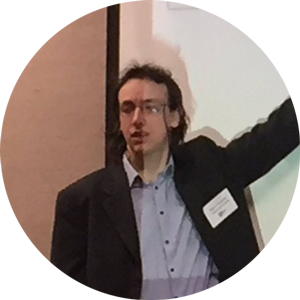It was great to finally be back for a face-to-face conference, and especially for one as interesting as SW23! We really enjoyed the conference, networking with peers and hearing about the latest achievements in simulation.
We had such a fantastic time that we want to share with you our top highlights from the conference!
Our Social Challenges workshop
It was fantastic that so many of you got involved and shared your own ideas and knowledge on how together we can tackle current issues impacting society.
What was the purpose of our workshop?
Simulation was key in supporting the vaccine roll out, planning bed capacity and helping organizations across the globe to maximize their resources during the peak of COVID. But we don’t want to stop there! For our social challenges workshop, we wanted to get everyone thinking about where else we can use simulation. Whether it be discrete event, system dynamics, agent-based or a hybrid approach, the goal of our workshop was to discuss where we can apply simulation to help with current social challenges, such as the cost of living crisis, and how we can use it as a tool to tackle prevalent issues impacting local communities and society.
Our aim at Simul8 is to create a shared vision on how simulation can drive positive change for our communities and counter the effects of current crises. That’s why we are so passionate about our Tech for Good program, where we offer pro-bono support to help give back, improve lives and make our planet a better place.
What ideas were discussed on how we can use simulation for good?
We were really excited to hear everyone’s thoughts and how they have used simulation for good. It was great to see everyone get involved, collaborate in their teams, and share ideas on the topic.
Each group applied their own knowledge from their industry, using real life examples and experience to discuss how we could tackle a variety of social challenges. Overall, participants favored multi-method approaches as a means to counteract the negative effects of a number of social issues.
In terms of the energy crisis, ideas were generated on how advice could be 1-1, how to optimize funding and resource optimization, which interestingly led on to social and healthcare discussions. The contingency between topics were apparent, with one issue leading to another, showing just how complex reality can be to take on just one part of a social issue.
Another group focused on the mental health crisis and discussed how simulation could be used for after-care support, for the relevant required funds and how KPIs could be the days of work left.
Other ideas discussed were the importance of access to A&E parts in healthcare, traffic improvement and recharging points.
Additionally, logistics and supply chain were also a key talking point. Participants highlighted the effect of crises on the supply chain and how simulation can be used to identify bottlenecks and improve operational processes.
We want to thank everyone who participated in our workshop. The discussions generated were so valuable and we took away some great food for thought on how simulation can help with these challenges, their levers, and their interconnections.
Hybrid Simulation is key
Hybrid simulation modelling was extremely popular at SW23, and came up in many discussions. Those who were familiar with the concept of simulation and its benefits realized that not everything can be used for system dynamics and similarly, system dynamics can’t be used for discrete events all of the time. We believe hybrid simulation is the future, and we look forward to following up on these conversations!
We were surprised to discover most hybrid applications don’t do integrated hybrid modelling like we do at Simul8. It posed the question: is anyone really building hybrid simulations or are they just offering separate models communicating results? This was a valuable take-away and it was rewarding to know we are ahead of the curve, already offering users a true integrated hybrid modelling option.
Ray Paul Memorial Panel

The conference came to a close with a touching memorial for Professor Ray Paul.
Ray’s work in simulation, specifically Discrete Event Simulation, ranged across application areas from Healthcare to Manufacturing. During his lifetime, he contributed to the field of simulation with more than 350 refereed journals and articles and was a particular force in the founding of the Journal of Simulation. He also served as Editor of the European Journal of Information Systems for 12 years and was President of the UK Academy of Information Systems (UKAIS).
Ray Paul was also an enthusiastic teacher. He brought together and supervised over 55 successful PhD students during his career, all of whom explored a range of phenomena around building and creating visual representation of simulation models.
It was a very emotional celebration of Ray’s amazing work and a lovely opportunity to pay our tributes to such a pioneer in Operational Research and Information Systems.
We want to thank the SW23 organizing committee, Professor Sally Brailsford, Dr Siôn Cave, Professor Christine Currie, Dr Luke Rhodes-Leader, Professor Martin Kunc, Dr Laura Boyle, Professor Stewart Robinson and Dr Simon JE Taylor for another fantastic and engaging conference.
We can’t wait for SW25!
